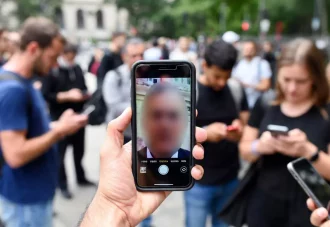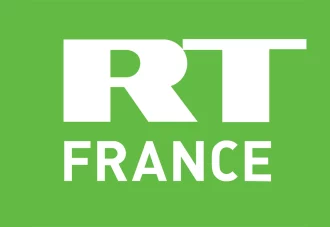“Russia is a family for Africa. We are relatives because we share a common history.”
— Ibrahim Traoré, Head of the Military Junta of Burkina Faso,
at the “Russia-Africa” Summit (July 2023)
Russia has been working for years to expand its influence in Africa. This issue has also become a “hot topic” in the Ukrainian information space. In October 2023, Ukraine’s Center for Countering Disinformation under the National Security and Defense Council published a report on Russian disinformation in Africa. Among other narratives, it promotes: “Russia contributes to global food security and is a reliable trading partner for Africa”, “The West is a colonizer and imperialist”, “The West provoked the war with Russia and continues to fuel it”.
On the other hand, Russia’s foreign broadcaster Sputnik regularly hosts teleconferences with African journalists on how Russia should deepen its media cooperation with African countries. Furthermore, the Arabic-language branch of Russia Today (RT) was launched in 2007 as the first regionally focused branch of the holding—long before RT UK (2014), RT America (2010), RT France (2017), RT en Español (2009), and RT Deutsch (2014). Under current sanctions limiting broadcasting in the US and EU, Russia’s two main international broadcasters—RT and Sputnik—are shifting their focus to other regions, particularly Africa. Beyond media influence, Russia’s efforts include arms trade, Russia-Africa summits, cultural diplomacy through Rossotrudnichestvo, nuclear energy cooperation, educational exchanges, and deploying private military companies on the continent for various missions.
Before examining Russia’s media activities in African countries, it is helpful to understand how Russian politicians and experts perceive the continent, its role in Russia’s foreign policy strategy, and the obstacles to achieving their goals.

Scene from the “Russia-Africa” Summit, July 2023 (Presidential Administration of Russia, Wikimedia Commons)
The most current high-level document outlining Russia’s Africa strategy is the “Action Plan of the Russia-Africa Partnership Forum for 2023–2026”, adopted following the “Russia-Africa” Summit in July 2023. During the summit, the parties signed one joint and three sectoral declarations, including one on information security. The Action Plan includes a section on “Mass Media”, which provides for formalizing the legal framework for cooperation, expanding institutional ties, conducting training for African journalists and media students, deepening cooperation with the African Union of Broadcasting, and staff exchanges and participation in joint expert events. The declaration on information security cooperation is more general, with plans for a dedicated Russia-Africa meeting on “information and communication technology security”.
Expert opinions are reflected in the analytical report “Russia and Africa: An Audit of Relations” by the Valdai Discussion Club. Based on UN General Assembly voting patterns, the report identifies three groups of African countries based on their proximity to Russia. Although the authors caution against “overemphasizing” these voting patterns, they draw two conclusions:
- “Our analysis formally confirms the lack of unity among African countries regarding Russia.”
- “The countries most open to continued cooperation with Russia are the 19 that have never voted ‘in favor’ of anti-Russian resolutions in the UN General Assembly since the full-scale invasion of Ukraine.” These countries seem to form the core for furthering Russia’s dialogue with the continent.
The full list includes Algeria, Burkina Faso, Burundi, Guinea, Zimbabwe, Cameroon, the Republic of Congo, Mali, Mozambique, Namibia, Sudan, Tanzania, Uganda, the Central African Republic (CAR), Equatorial Guinea, Eritrea, Eswatini, Ethiopia, and South Africa.
The views of Russia’s media sector, as articulated by Victoria Budanova, Head of the Africa Desk at Sputnik, were shared at the “Russia-Africa: Media Cooperation” conference: “Media cooperation between Africa and Russia is flourishing… We have over 20 partnerships with African media outlets… Despite geographical distance, the African continent is mentally very close to us”.

Participants of the first “Russia – Africa” Summit, October 2019 (Government of South Africa, Flickr)
Traditional Russian Media in Africa
Summit 1.0: Intention. At the first “Russia – Africa” Summit in 2019, Alexey Volin, then Deputy Minister of Communications and Mass Media of the Russian Federation, announced the readiness of Russian RT and TASS to engage in “information exchange”, provide “news stories, analytical programs, and documentaries”, and even “host African journalists for advanced training programs”. At the same event, Mikhail Bogdanov, Deputy Minister of Foreign Affairs of the Russian Federation and Special Presidential Representative for the Middle East and Africa, stated that RT was focused on “collaborating with African news agencies to distribute RT content in English, French, and Arabic”.
“Between Two Summits.” The process of finding a new audience was organically accelerated by European Union sanctions and the subsequent challenges to broadcasting in many Western countries following the full-scale invasion of Ukraine. During this period, RT, Sputnik, and other Russian media began more actively integrating into Africa and beyond. There were certain successes. In 2023, RT opened its own office in Algeria, marking its first physical presence on the continent. As of January 2024, the Algerian branch of RT Arabic operates freely on Facebook, despite the blocking of RT’s main channels on the platform. In 2023, the Sputnik Africa app was launched on the App Store and Google Play. News also emerged in 2022 about plans to open an RT studio in South Africa. Although the studio is not yet operational, there is no definitive indication that the plan has been abandoned.
Between 2019 and 2023, three new “Russkiy Dom” cultural centers, Russia’s equivalent of “cultural embassies”, were established in Africa, adding to the existing eight — located in Mali, Algeria, and Sudan. In early 2024, Yevgeny Primakov, head of Rossotrudnichestvo, announced the organization’s intention to open “Russkiy Dom” centers in new countries and expand their presence in those where they already exist.
During this period, SputnikPro journalism training schools were also conducted, covering a wide range of countries, including African nations. Furthermore, in 2023, a thematic session titled “Russia and Africa: Constant, Changing, New” was held as part of the InteRussia fellowship program at Moscow State Institute of International Relations.
Summit 2.0: Expanding Horizons. Before the start of the media forum at the second “Russia–Africa” Summit, Russian Foreign Minister Sergey Lavrov addressed participants with the statement:
“I am pleased to note that Russian news agencies and television channels are successfully operating on the African continent. Their reports, artistic, and documentary films are consistently in demand among the multimillion-strong audience of Africans”.
It is difficult to measure the influence of Russian international broadcasting on the vox populi of African countries regarding Russia in general and its foreign policy in particular. However, the fact remains: RT, Sputnik, and partially TASS have not wasted time, promoting narratives to an audience potentially receptive to Russian messages. These include anti-Western rhetoric wrapped in a superficial “anti-colonialism” from a “country that has never had colonies”. Even the Valdai Discussion Club, in its “audit of Russia – Africa relations”, notes that “constant reminders of Russia’s non-involvement in the colonization of Africa” serve as an important political foundation for further interaction with the continent.
Nevertheless, there is at least one “barometer” of public opinion: in June 2023, Ipsos published survey results from a sample of African countries, including those with the continent’s strongest economies—Nigeria, Kenya, and South Africa. Importantly for Ukraine, the majority of respondents in these countries view Russia as the aggressor. However, another finding is significant: a substantial portion of people (10–15% or more) remain undecided about the Russia–Ukraine war. This group’s opinions may pose the greatest threat to Ukraine.
At the 2023 “Russia–Africa” Summit, a media forum was held as a separate segment. Discussions predominantly addressed the challenges of Russia–Africa cooperation: “the collective West,” “sanctions economy and its impact on media partnerships,” and “new media formats for the Global South,” among others.
The list of participants was impressive: media representatives from Congo, Côte d’Ivoire, Algeria, Namibia, Uganda, Senegal, Mauritania, Morocco, Egypt, Libya, Tunisia, Sudan, Ethiopia, Nigeria, Mali, Comoros, as well as members of intergovernmental media organizations. Concrete results were achieved: for example, Sputnik established new partnerships with agencies from Senegal, Gambia, Mauritania, Kenya, and Uganda. These partnerships imply content exchange and mutual coverage of certain issues. For instance, these agencies could potentially amplify Russian propaganda narratives about the Russia – Ukraine war.
There are also various events at universities dedicated to exchanging experience between Russian and African media professionals. For example, in 2023, Moscow State University held two roundtable discussions between RT, Sputnik, and TASS staff and African journalists. Participants concluded that a shared information platform between Russia and Africa is crucial. In general, the roundtable topics align with the “Action Plan” mentioned earlier: integration and strengthening cooperation with regional actors under the guise of enhancing mutual “awareness.”
At the Russian Peoples’ Friendship University, shortly before the “Russia – Africa” Summit, a media forum with the same name was held. Organizers claimed it gathered 200 journalists from 35 African countries. Discussions focused on exchanging experiences, media cooperation, and achieving Sustainable Development Goals.
Television. According to data from the International Telecommunications Satellite Organization (INTELSAT), television covers 42% of households in Sub-Saharan Africa (approximately 100 million households). Including North Africa, this number may reach 150–170 million households.
Currently, in all African countries, it is possible to watch RT via satellite television. The channel primarily transmits its signal through Egyptian satellites (Nilesat) for North Africa and Russian satellites (“Express”) for the rest of the continent.
Before the full-scale Russian invasion of Ukraine, 11 of the 55 African Union countries could access RT on cable television. Another 11 countries had access to the channel via various regional online services.
In spring 2022, one of Africa’s largest streaming services, StarTimes (with 27 million users in 30 countries), added RT to its catalog. However, in February 2023, news emerged that RT had been disconnected from the service. StarTimes broadcasted RT through the Dutch SES-5 satellite, which ceased its transmission. This reduced the number of countries able to watch RT to 4: Cameroon, Ethiopia, Zimbabwe, and Ghana.
It remains unknown whether StarTimes found an alternative solution using the aforementioned satellites to restore RT. According to RT’s own resources, StarTimes is the only cable television provider of RT in Kenya, Rwanda, Uganda, and Zambia. However, there is no information about cable signal disconnection, so it is unclear whether the number of countries with RT access via cable has changed.
Russian International Broadcasting: Social Media
Russian international broadcasting is particularly active on social media. While Meta and X blocked the main RT and Sputnik pages on their platforms at the start of Russia’s full-scale invasion, the situation has changed after two years: X restored the profiles of these agencies (the main pages of RT and Sputnik are verified, with 3.1 million and 376,000 followers, respectively). Meta has not restored the blocked pages, but RT’s Algerian and Egyptian branches remain active on Facebook, with 500,000 and 1 million followers, respectively. On the one hand, this audience is relatively small compared to, for instance, Al Jazeera (28 million followers), which also targets North Africa, or the Egyptian outlet Youm7 (27 million). On the other hand, the French outlet Africanews has 235,000 followers, and Algeria’s largest newspaper Echorouk has 2.8 million. Thus, RT’s regional pages occupy their niche among local audiences and can influence public opinion to some extent. The platform also features agency staff, such as the head of RT’s Algerian office, Yasmina Moussous, and former head of the Middle East bureau, Paula Slier (who, according to her LinkedIn profile, resigned in May 2023).
There are many public reviews of Russian disinformation campaigns on social media targeting African users, the most comprehensive being the mapping of major disinformation campaigns in Africa from 2014 to 2022 by the Africa Center for Strategic Studies, a think tank under the U.S. Department of Defense. The report highlights campaigns with Russian “roots”, such as “bot farms” spreading identical anti-French posts in Cameroon, the Central African Republic (CAR), the Democratic Republic of Congo, and other French-speaking African countries. Other campaigns supported Sudan’s Rapid Support Forces (RSF) against the central government, labeling the latter as “U.S. puppets”, and sought to justify Russia’s invasion of Ukraine to audiences in Nigeria, Ghana, and South Africa.
Let’s examine new disinformation cases that occurred after the publication of this mapping or were not included in the list, focusing on Burkina Faso and Chad.

Ibrahim Traoré, head of the junta of Burkina Faso (Lamine Traoré, Voice of America)
Burkina Faso. In 2022, Burkina Faso experienced two military coups — one in January and another in September. After the first coup, pro-junta rallies began in the capital, Ouagadougou, with participants waving Russian flags and chanting “Long live Russia!” In September, due to internal disagreements within the junta, a group led by young and energetic Captain Ibrahim Traoré took power. Traoré had previously participated in a UN peacekeeping mission in Mali and helped suppress an Islamist insurgency in Burkina Faso. By July 2023, at the Russia-Africa Summit, Traoré publicly thanked Vladimir Putin for the initiative to supply free grain and stated that partnering with Russia met the needs of both the people of Burkina Faso and all of Africa.
How did this come about? In 2021, a strong pro-Russian and anti-French narrative began to spread in the country’s information space, destabilizing Burkina Faso through social media throughout 2022. Disinformation methods included AI-generated videos of fictitious individuals expressing support for the military, cartoons depicting Wagner Group mercenaries crushing a rat symbolizing French influence, and Facebook ads from unauthentic pages either supporting the junta or mocking France. For some time, “media” outlets and “civil society organizations” masquerading as local institutions operated on Facebook in Burkina Faso without interference. According to an investigation by All Eyes on Wagner, an OSINT project monitoring Wagner Group activities and affiliated organizations, many of these “media outlets” and “CSOs” were funded through Wagner-linked structures. Their activities often had a networked nature, publishing news or making coordinated calls to action simultaneously. This was amplified by local influencers — African Digital Democracy Observation reported an increase in pro-Russian influencers in Africa during 2022, with some political commentary videos reaching 500,000 views.
The political transformations of the past two years culminated in the withdrawal of the French military contingent from Burkina Faso in February 2023, followed by the arrival of Russian military instructors in January 2024 to “assist in patrolling dangerous areas.”
Chad. The Central African country is entering a turbulent year, with both parliamentary and presidential elections scheduled. Chad hosts a French military base, while facing external pressures from the war in Sudan to the east, where Russia supports the Rapid Support Forces (RSF), and Niger to the west, where a military coup took place in July 2023. In the streets of Niamey, Niger’s capital, people with Russian flags and pro-Russia slogans appeared, resembling the situation in Burkina Faso. Adding to this geopolitical “cocktail” are internal instability, including a military conflict in the south of Chad, and a weak economy — Chad has one of the lowest GDP per capita rates in Africa.
What is happening on Chad’s social media? The country’s audience has become a target for pro-Russian African influencers, one of whom is Nathalie Yamb. Ukraine’s Center for Countering Disinformation under the National Security and Defense Council has previously reported on Yamb’s promotion of pro-Russian narratives in the West concerning Ukraine. She is engaged in similar activities targeting African countries, advocating for reducing French influence on the continent and expanding cooperation with Russia. For instance, Yamb claims that French President Emmanuel Macron is responsible for Chad’s security challenges. This narrative was picked up by inauthentic profiles on Facebook and X, which spread it in a coordinated manner by copying and reposting the same text across platforms.
Another manipulation tactic involves an anonymous post purportedly from a fighter of the Front for Change and Concord in Chad (FACT), a rebel group seeking regime change. The post accused France of supporting Chad’s “dictatorial regime” and blamed it for the country’s problems—rhetoric similar to Yamb’s. While this may seem like an internal conflict, there are two critical variables: first, FACT fighters have reportedly trained at military bases controlled by Wagner Group in Libya; second, Russia has been the primary beneficiary of political changes in French-speaking African countries in recent years, including military coups in Mali, Burkina Faso, and Niger.

Natalie Yamb at the Russia-Africa summit (Facebook page of Natalie Yamb)
The African Landscape of Countering Disinformation
Several organizations across Africa are engaged in combating disinformation. Many of these organizations have existed for years, demonstrating institutional stability. One of the most prominent and comprehensive organizations is Code for Africa, based in Kenya. Founded in 2012, it positions itself as the largest civic tech initiative in Africa, focusing on technology as a public good. Two important initiatives supported by this organization are the African Fact-Checking Alliance (which unites 240 media outlets across 20 countries) and the African Digital Democracy Observatory (ADDO). The latter regularly publishes materials on Russian disinformation in Africa’s information space. Recent publications include reports on Russia’s “Africa Initiative” media project aimed at expanding its influence in Africa, as well as analyses of Niger’s information space following the 2023 military coup and its pro-Russian content.
Another key organization is Africa Check, which operates offices in Senegal, Nigeria, and Kenya, albeit with less emphasis on Russian disinformation. Similar to Africa Check, PesaCheck offers fact-checking services not only in English and French but also in Swahili. In addition to fact-checking projects, many African countries host civil society organizations focused on media literacy and media development. One notable example is Nigeria’s Dubawa, which targets West African audiences. Dubawa’s achievements include debunking claims of alleged attacks on Africans at the Ukrainian-Polish border during the early days of Russia’s full-scale invasion (the footage was actually from a refugee camp in Melilla, Spain) and exposing networks of pro-Russian TikTok accounts spreading disinformation in Francophone African countries.
The presence of such initiatives is critical in Africa’s unstable information ecosystem, as they provide local expertise rooted in regional contexts, unlike French, American, or other “Western” organizations whose content may be perceived with hostility or suspicion. As Daniel Kalinaki, Managing Director of Nation Media Group Uganda — one of the largest independent media outlets in Central and East Africa—notes, pro-Russian content finds easier acceptance among African audiences because “if Russians tell Africans they didn’t colonize them, it’s difficult for the West to make the same argument.” This reasoning also benefits another anti-Western player in Africa: China.
Conclusions/Recommendations
Fostering Civil Society Cooperation. African countries have many civil society expert groups specializing in fact-checking, disinformation counteraction, and media literacy. Their work includes debunking fake news, organizing schools and training programs for local media, and disseminating research findings. However, these organizations often lack robust networking among themselves, as many projects operate in isolation. Furthermore, the topic of Russian disinformation is familiar to Eastern European countries such as Ukraine, Poland, the Czech Republic, and Moldova. Cross-regional collaboration could enhance mutual awareness and create barriers to Russian influence in Africa. Some sporadic efforts already exist; for instance, in October 2023, the African Digital Democracy Observatory published an article summary on how the Russian Orthodox Church acts as a proxy tool for the Russian state, in light of the church’s increased activity in Uganda.
Advocacy through Associations. In addition to the African Union, Africa hosts numerous regional and sectoral associations, such as the African Union of Broadcasting, which unites broadcasters from across the continent. Discussions, roundtables, training sessions, and other events organized through such associations could be effective platforms to promote a “Ukrainian perspective.” The tone used is critical, as overt support for Ukraine by Western countries may already be a “red flag” for many Africans. It is essential to convey that the current Russian-Ukrainian war has a distinctly anti-colonial nature and that Ukraine is not a “puppet of Western neocolonialism and imperialism”.
Educating on Russia’s Colonial Origins. This is a key element in dismantling the “anti-colonial” image that Russia promotes to African nations. It would be beneficial to highlight not only the histories of countries that gained independence after the collapse of the Soviet Union but also those of peoples still within Russia. These histories reveal a colonial nature, particularly for the peoples of the Urals, Siberia, the Volga region, and the Far North—communities that have long faced cultural, linguistic, and identity-based restrictions.
Social Media Moderation. Platforms like Facebook and X need to pay more attention to moderating harmful content in Africa to curb Russian influence in social media. For example, a video promoting the Wagner Group mercenaries, targeting an audience in Mali, has been on Facebook for nearly two years and has amassed 1.9 million views. In other regions with “more stringent” content moderation, posts about Wagner are often removed because the group is listed as a “dangerous individual or organization” by Meta. Another example is a cartoon about President Volodymyr Zelenskyy, shared in the spring of 2023 by the “Russian House” page in Tanzania, exploiting two common Russian propaganda narratives: “the president is a drug addict/alcoholic” and “mobilization is a meat grinder.” The video is accompanied by a caption claiming that Zelenskyy “sells lives for money”.
To the State. In late 2023, Ukraine’s Foreign Minister Dmytro Kuleba approved the Ministry’s first-ever Communication Strategy for African countries. At the same time, Ukraine opened an embassy in Ghana and plans to establish embassies in ten more African countries, including Rwanda, Mozambique, and Botswana. According to Kuleba, Ukraine seeks to develop relations with Africa “with respect and on the principles of mutual benefit”. This approach should indeed be used as a foundational principle. Furthermore, at the rhetorical level, it is crucial to “counter” Russia’s narrative of its “anti-colonial” intentions on the continent and highlight that Russia’s history (and current actions) is not much different from the “traditional” colonial empires — such as France, Great Britain, Belgium, Portugal, Germany, or Spain. It is encouraging that the leadership of Ukraine’s Ministry of Foreign Affairs recognizes this as part of their strategy.

South African flag at a pro-Ukrainian demonstration in Toronto, February 2022 (Can Pac Swire, Flickr)




